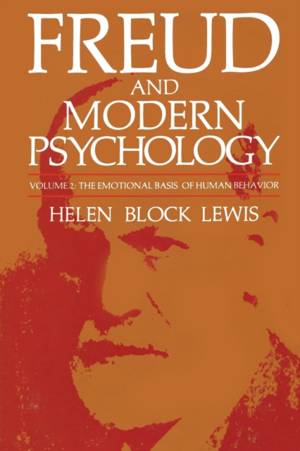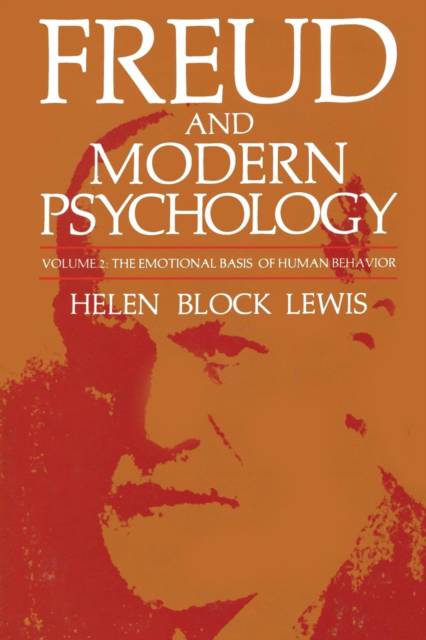
- Afhalen na 1 uur in een winkel met voorraad
- Gratis thuislevering in België vanaf € 30
- Ruim aanbod met 7 miljoen producten
- Afhalen na 1 uur in een winkel met voorraad
- Gratis thuislevering in België vanaf € 30
- Ruim aanbod met 7 miljoen producten
Zoeken
Freud and Modern Psychology
The Emotional Basis of Human Behavior
€ 106,95
+ 213 punten
Omschrijving
Freud's discovery of an emotional basis for mental illness led him to pursue the emotional basis of human behavior in general. This pursuit led him to undertake observational studies of dreams (1900), everyday mistakes (1901), sexuality (1905b), character formation (1908, 1931), jokes (1905a), and the origin of guilt (1913). Volume 2 of Freud and Modern Psychology examines the texts of each of these major writings in general psychology, continuing to explore the contradiction between Freud's observations about the power of emotions and his narrow the- oretical formulations about human behavior. Volume 2 also reviews the remarkable power of the uniquely moral emotions of shame and guilt not only to create psychiatric symptoms, as discussed in Volume 1, but to infiltrate our nightly dreams, create everyday parapraxes, influence the development of sexuality, specify the emotional release in jokes, shape personality, and "create" human culture. As we saw in Volume 1, we shall see again in Volume 2 that Freud's theoretical difficulties arose from the absence of a viable theory of human nature as cultural, that is, social by biological origin. In a the- oretical framework based on the cultural nature of human nature, the emotions and the social cohesion are reciprocally related to each other. The emotions are the means of the social cohesion which, in turn, is the means by which the emotions, including shame and guilt, are formed in infancy.
Specificaties
Betrokkenen
- Uitgeverij:
Inhoud
- Aantal bladzijden:
- 246
- Taal:
- Engels
- Reeks:
Eigenschappen
- Productcode (EAN):
- 9781468445343
- Verschijningsdatum:
- 18/03/2012
- Uitvoering:
- Paperback
- Formaat:
- Trade paperback (VS)
- Afmetingen:
- 152 mm x 229 mm
- Gewicht:
- 335 g

Alleen bij Standaard Boekhandel
+ 213 punten op je klantenkaart van Standaard Boekhandel
Beoordelingen
We publiceren alleen reviews die voldoen aan de voorwaarden voor reviews. Bekijk onze voorwaarden voor reviews.







